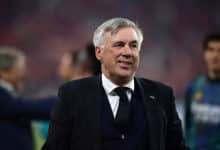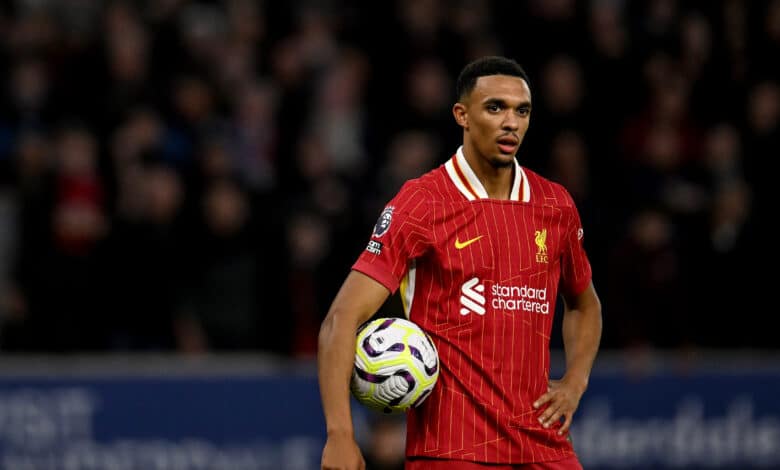
Driven by ambition and the pursuit of new legacies, the potential transfer of Trent Alexander-Arnold from Liverpool to Real Madrid exemplifies the complex decisions behind major football player moves, a phenomenon explored in this article alongside the departures of other iconic players like Beckham, Owen, and Kane, and their lasting impact on their former clubs.
Table of Contents
Trent Alexander-Arnold (Liverpool to Real Madrid)
Departure from Liverpool
Trent Alexander-Arnold has spent two decades at Liverpool, progressing through the academy to become vice-captain and a key player in their Premier League (2020, 2025) and UEFA Champions League (2019) victories. Known for his exceptional passing and attacking play from right-back, he currently holds the record for most Premier League assists by a defender. In 2025, he has confirmed his intention to depart, seeking a new challenge after 20 years at the club and having won every major honour with them. His aim is to push himself in a new environment. Despite reportedly being offered a new contract, he is set to leave as a free agent. He acknowledges the emotional impact this will have on fans but feels the move is the right one for his career at this stage.
Arrival at Real Madrid
The allure of Real Madrid, with its history of success and the prospect of individual accolades like the Ballon d’Or, is a significant draw for Alexander-Arnold. The chance to consistently compete for major trophies like La Liga and the UEFA Champions League aligns with his ambitions. The prospect of potentially joining his England teammate Jude Bellingham is also a factor. His arrival at the Santiago Bernabéu is anticipated with enthusiasm. Initial expectations are that he will provide attacking width and potentially take over playmaking duties. He is expected to sign a five or six-year contract with a substantial salary increase. Real Madrid’s aim is for him to join by June 1, 2025, in time for the Club World Cup.
Impact on Liverpool
Alexander-Arnold’s departure will create a significant void in Liverpool’s squad after many years as a mainstay. Liverpool will miss his exceptional quality and impact on attacking play. While Conor Bradley offers a potential back-up, manager Arne Slot is expected to seek another replacement. Financially, his free transfer will be a setback. The emotional impact on Liverpool supporters is varied, with some likely to express disappointment and anger, while others may understand his desire for a new challenge after two decades of service. His legendary status at the club is acknowledged by teammates.
Success and Challenges at Real Madrid
Joining Real Madrid presents Alexander-Arnold with an opportunity to win more trophies, including La Liga and the UEFA Champions League. His attacking skills could significantly benefit Real Madrid. Playing for such a prestigious club also increases his chances for individual awards like the Ballon d’Or. However, he will face competition for a starting role and pressure to perform consistently. Adapting to a new league and playing style will be crucial. He will need to meet the high standards of other Real Madrid stars. His defensive capabilities might also face greater scrutiny in Spanish football.
Trent Alexander-Arnold isn’t, of course, the first to be seeking new challenges due to one reason or another. Let’s take a look at some notable players who left the club they were most identified with and grew at in order to take a more lucrative offer for their career path.
David Beckham (Man United to Real Madrid)
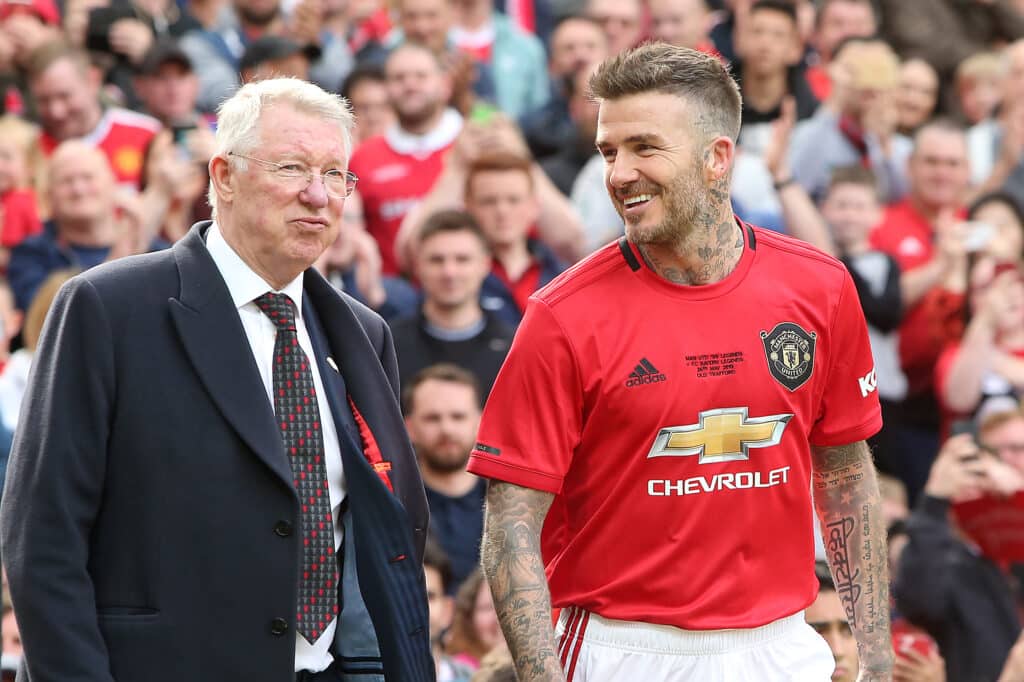
Departure from Manchester United
David Beckham, a key player from Manchester United‘s ‘Class of ’92’, was vital in their dominant era, winning six Premier League titles and the 1999 UEFA Champions League. Renowned for his crossing and free-kicks, he became a global icon at Old Trafford. In 2003, he joined Real Madrid due to a strained relationship with Sir Alex Ferguson and the allure of the ‘Galácticos’ project. Ferguson was concerned about Beckham’s focus shifting to commercial interests. Beckham stated he didn’t want to leave but felt forced out after the club agreed to a transfer without his consent. The transfer fee was €35 million, with Beckham signing a four-year deal worth €6 million annually.
Arrival at Real Madrid
Beckham’s move to Real Madrid was driven by the chance to be part of the ‘Galácticos’ alongside stars like Zidane and Ronaldo. He admitted he would have regretted not taking the opportunity. His unveiling was a major global event. Despite his superstar status, teammates were surprised by his humility. He aimed to contribute to the team rather than be the main star. His positive attitude and work ethic quickly won over his teammates. He became an integral part of Real Madrid’s midfield.
Impact on Manchester United
Beckham’s departure meant losing a key right-wing player known for his crossing. While Roy Keane felt it negatively impacted the dressing room, Gary Neville suggested it was the right decision for both parties. Manchester United received a substantial €35 million transfer fee. The emotional impact on fans was significant, with many sad to see a homegrown talent leave. Beckham himself was deeply saddened by his departure. Ferguson signed David Bellion as his first replacement, but the most significant consequence was the later signing of Cristiano Ronaldo.
Success and Challenges at Real Madrid
Beckham contributed to Real Madrid winning La Liga in 2007 and the Spanish Super Cup. He played a pivotal role in the La Liga triumph in his final season. He scored 20 goals in 158 appearances and was known as an “assist master”. His work rate endeared him to fans. However, some argued his signing contributed to the team imbalance. His arrival significantly boosted Real Madrid’s commercial success through merchandise sales and brand appeal. His dedication was praised by fans. Opinions on the transfer’s success are divided, but it solidified his global icon status.
Jack Grealish (Aston Villa to Manchester City)

Departure from Aston Villa
Jack Grealish was the central figure for Aston Villa, leading them to promotion in 2019 and ensuring their Premier League survival. A creative midfielder with exceptional dribbling, he captained Villa and was crucial to their attack. In 2021, he moved to Manchester City for a record £100 million, driven by the desire to win major trophies and work with Pep Guardiola. He also wanted to play Champions League football. Leaving Aston Villa was emotional for Grealish, who had been with the club since childhood. He ensured Villa would receive significant compensation upon his transfer.
Arrival at Manchester City
Grealish joined Manchester City to compete in the UEFA Champions League, win trophies, and play alongside world-class players. The chance to learn from Pep Guardiola was also key. Manchester City welcomed his “wonderful natural ability” and gave him the number 10 shirt. He received a warm reception from City fans. The £100 million fee made him the most expensive British player at the time. While Guardiola noted his seamless integration, Grealish admitted adapting to City’s demands was challenging.
Impact on Aston Villa
Grealish’s departure left a significant void at Aston Villa. However, the club reinvested the £100 million transfer fee to strengthen their squad. This allowed them to make key signings. The emotional response from Aston Villa fans to his return was mixed, with some booing him while others appreciated his contributions. Since his departure, Aston Villa showed progress, qualifying for Europe and finishing 4th in the Premier League in 2024, securing a Champions League spot.
Success and Challenges at Manchester City
Grealish achieved his aim of winning major trophies at Manchester City, including three Premier League titles and the 2023 UEFA Champions League. He also won the FA Cup and UEFA Super Cup. However, his output faced scrutiny compared to his time at Aston Villa. While his statistics weren’t as high, he played a vital role in City’s treble-winning season. Guardiola valued his contributions beyond goals and assists. The transfer was a success in terms of team trophies, but the high fee and individual output remain debated.
Harry Kane (Tottenham to Bayern Munich)
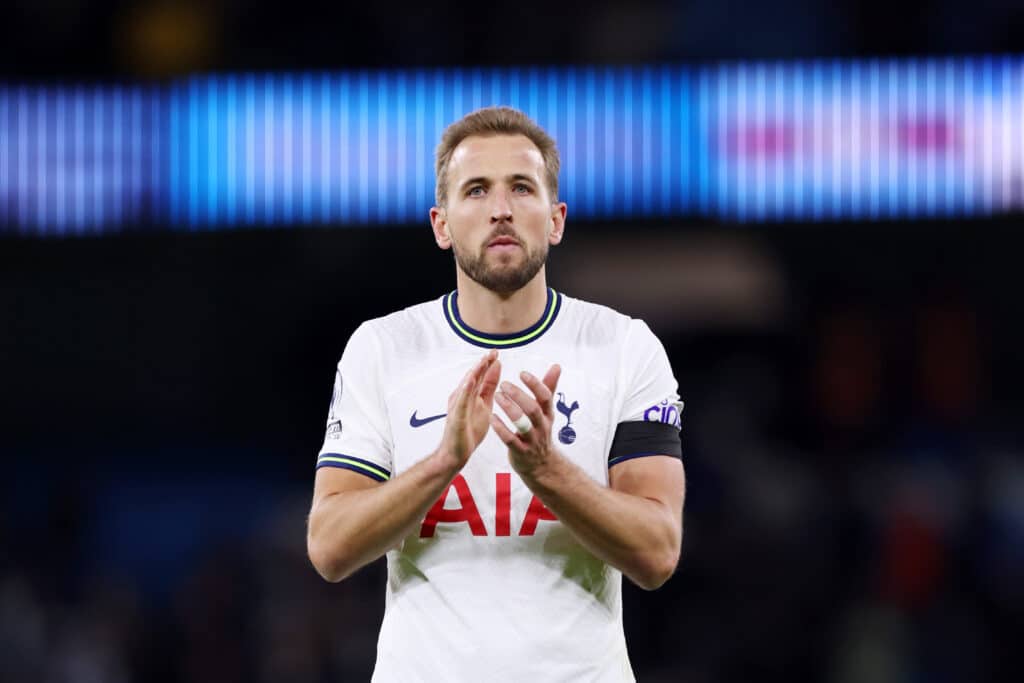
Departure from Tottenham
Harry Kane became Tottenham Hotspur‘s all-time leading scorer with 280 goals and is second in Premier League history. Despite individual brilliance, major team trophies eluded him at Spurs. In August 2023, he joined Bayern Munich for a club-record €110 million, seeking silverware and UEFA Champions League glory. He informed the new Tottenham manager of his desire to leave on the first day. Leaving Tottenham was emotional for Kane. The €110 million transfer fee highlighted his status as a top striker.
Arrival at Bayern Munich
Kane’s move to Bayern Munich was primarily motivated by his pursuit of major trophies, including the Bundesliga and UEFA Champions League. He aimed to compete consistently at the highest level. Bayern Munich welcomed Kane, with the CEO calling him their “absolute dream player”. He was seen as the ideal successor to Robert Lewandowski. Kane settled quickly in Munich with his family and focused on adapting to the Bundesliga.
Impact on Tottenham
Kane’s departure significantly impacted Tottenham’s attacking output. Son Heung-min was appointed captain. Under Ange Postecoglou, the team showed promising adaptation. Tottenham received a club-record €110 million transfer fee. The emotional reaction from Tottenham fans was mixed, with sadness and understanding. Postecoglou acknowledged the fans’ right to mourn. In the season after Kane’s exit, Tottenham finished fifth in the Premier League in 2024.
Success and Challenges at Bayern Munich
Harry Kane explicitly stated his move to Bayern Munich was driven by the aspiration to finally win major competitions and trophies, something that had eluded him for over a decade despite his individual brilliance at Tottenham. While he swiftly achieved Bundesliga success in 2025, becoming the league’s top scorer and breaking numerous records, this victory marked the end of a significant drought in his career. His impact on Bayern Munich has been immediate and significant, and the Bundesliga title represents a long-awaited team honor, even as he continues to pursue further silverware, particularly the coveted UEFA Champions League
Mario Götze (Dortmund to Bayern Munich)
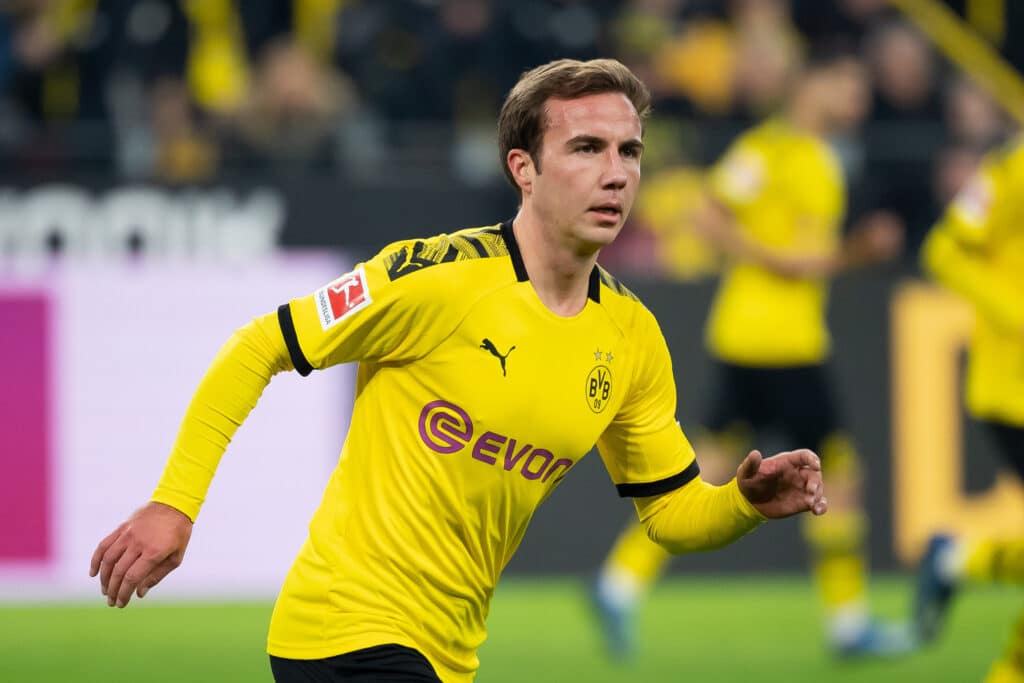
Departure from Borussia Dortmund
Mario Götze, a product of Borussia Dortmund‘s academy, was key in their Bundesliga wins (2011, 2012) and reaching the 2013 UEFA Champions League final. In 2013, he controversially joined rivals Bayern Munich for €37 million, becoming the most expensive German player at then. He cited the desire to play under Pep Guardiola as the main reason. His contract had a release clause that Bayern activated. Jürgen Klopp expressed frustration with the timing of the announcement.
Arrival at Bayern Munich
Götze joined Bayern Munich to play under Pep Guardiola’s tactical style. Expectations were high for his impact. He started well, scoring 15 goals and providing 13 assists in his first season. Guardiola used him centrally. At Bayern, he won three Bundesliga titles, two DFB-Pokals, the FIFA Club World Cup, and the UEFA Super Cup. He also scored against his former club. However, his performances were inconsistent, and he faced competition for places. Injuries also hampered his progress.
Impact on Borussia Dortmund
Götze’s move to Bayern Munich was a significant blow to Borussia Dortmund, as they lost a key attacking player. The timing before the Champions League semi-final was damaging. His transfer began a trend of key players leaving for Bayern. While Dortmund received €37 million, the sporting void was hard to fill. The emotional impact on Dortmund fans was strong, with many feeling betrayed.
Success and Challenges at Bayern Munich (Continued)
In 2016, Götze returned to Borussia Dortmund, aiming to revive his career. He later admitted regretting his early departure from Dortmund. However, his second spell was affected by metabolic issues. He later moved to PSV Eindhoven in 2020 and Eintracht Frankfurt in 2022. Despite club career complexities, he is remembered for scoring Germany’s winning goal in the 2014 FIFA World Cup final.
Michael Owen (Liverpool to Real Madrid)
Departure from Liverpool
Michael Owen was a sensation at Liverpool, becoming their youngest scorer and leading scorer for seven seasons, winning the UEFA Cup, FA Cup, and League Cup in 2001, the same year he won the Ballon d’Or. In 2004, with Liverpool struggling, he joined Real Madrid for £8 million. Owen had always envisioned being a one-club man but felt the urge to play for Real Madrid. His intention was to return to Liverpool later. The £8 million fee was low due to his contract nearing its end.
Arrival at Real Madrid
Owen’s move to Real Madrid was driven by the chance to experience a new footballing culture and play with legends. Despite often being a substitute, he scored 13 La Liga goals and won the Spanish Super Cup. He scored 16 goals in 45 appearances. However, he often played behind other stars, experienced homesickness, and his family struggled to settle. Owen felt insecure about establishing himself.
Impact on Liverpool
Liverpool’s loss of Owen meant the departure of their leading scorer. The club had been struggling, making his exit a further blow. The £8 million fee was considered low for a Ballon d’Or winner. The emotional impact was complex, but his later move to Manchester United severely damaged his legacy with Liverpool fans.
Success and Challenges at Real Madrid
Owen won the Spanish Super Cup with Real Madrid. While his trophy count was limited, he scored a decent number of goals despite being mostly a substitute. He faced challenges due to limited playing time behind established stars. He and his family also experienced homesickness. After one season, he sought a return to Liverpool, but Real Madrid rejected their bid. Owen admitted regret over losing control of his career after the move.
Raheem Sterling (Liverpool to Manchester City)
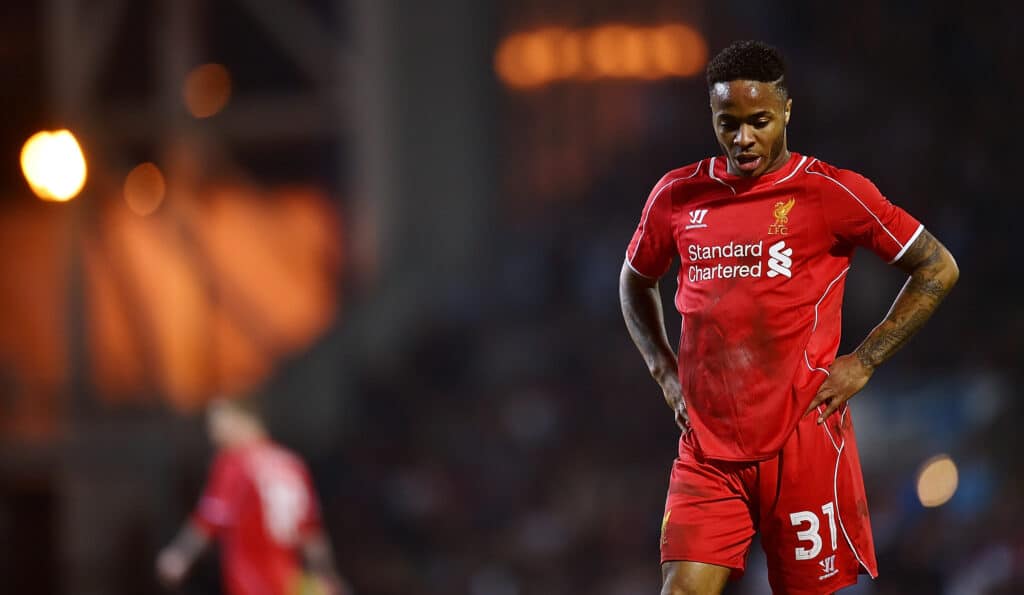
Departure from Liverpool
Raheem Sterling emerged as a dynamic winger at Liverpool, playing a key role in their 2013-14 title challenge and winning the 2014 Golden Boy award. In 2015, he moved to Manchester City for £49 million after a contract dispute, seeking UEFA Champions League football and trophies. He felt his ambitions didn’t align with Liverpool’s at the time. The contract dispute was acrimonious. His exit caused animosity from Liverpool supporters.
Arrival at Manchester City
Sterling joined Manchester City to compete in the UEFA Champions League and win major trophies. The chance to work with Pep Guardiola was also a big draw. Manchester City paid £49 million for him. Under Guardiola, he became a prolific scorer. Guardiola praised his initial impact.
Impact on Liverpool
During his time at Liverpool, Raheem Sterling developed significantly under the management of Brendan Rodgers. Rodgers’ influence provided him with crucial opportunities and tactical understanding that shaped his early career as a dynamic winger. While his subsequent departure to Manchester City was a sporting loss and caused considerable disappointment among Liverpool supporters due to the circumstances and destination, the foundations laid under Rodgers were instrumental in Sterling’s progression.
Success and Challenges at Manchester City
Sterling enjoyed considerable success at Manchester City, winning four Premier League titles, five League Cups, and one FA Cup. He also reached the UEFA Champions League final. He earned individual awards like PFA Young Player of the Year and FWA Footballer of the Year in 2019. He consistently scored goals under Guardiola. He later joined Chelsea in 2022, seeking more regular starts.
Toni Kroos (Bayern Munich to Real Madrid)
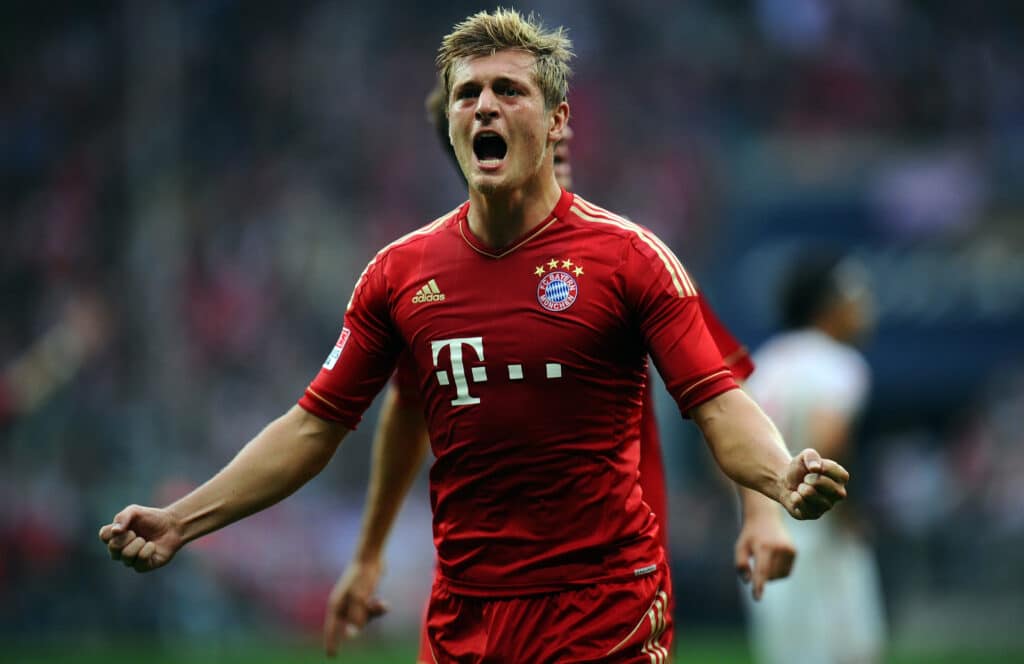
Departure from Bayern Munich
Toni Kroos rose through Bayern Munich’s ranks, winning three Bundesliga titles and the 2013 UEFA Champions League. In 2014, he joined Real Madrid for €25 million after a Manchester United agreement fell through. He cited a lack of appreciation from Bayern’s management as a key reason. He felt undervalued compared to players like Götze. Despite this, Guardiola wanted him to stay. The €25 million fee was considered a bargain.
Arrival at Real Madrid
Kroos joined Real Madrid for a new challenge and to develop further. Carlo Ancelotti was keen to sign him. He quickly became a key midfielder for Real Madrid, known for his passing and tactical intelligence. He formed a successful partnership with Luka Modrić.
Impact on Bayern Munich
Bayern Munich’s loss of Kroos was significant. Former sporting director Matthias Sammer admitted it was a mistake, potentially costing them more Champions League success. While they continued domestic dominance, their Champions League performance dipped. Guardiola was reportedly disappointed by his departure.
Success and Challenges at Real Madrid
Kroos had tremendous success at Real Madrid, winning four La Liga titles and five UEFA Champions League trophies. He earned numerous individual awards and is considered one of the greatest midfielders ever. He retired after Euro 2024, leaving a legacy as a Real Madrid legend.
The Balancing Act: Loyalty vs. Ambition in Transfers
The decisions of these eight players to leave their boyhood clubs highlight the complex interplay of loyalty and ambition in football. Their departures had varied impacts on their former clubs, ranging from financial benefits to significant sporting losses and emotional responses from fans. For the players, the moves brought different levels of success and challenges, with some achieving their trophy ambitions while others faced unexpected difficulties. Ultimately, these transfers underscore the personal and professional considerations that drive players’ career choices at the highest level of the game.


